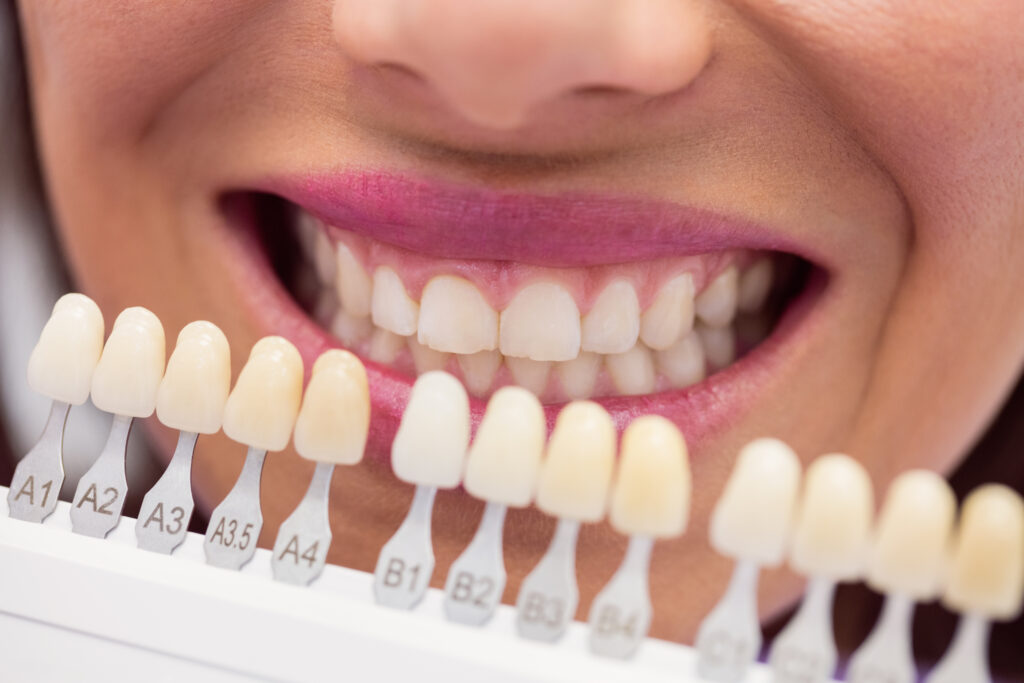Dental veneers are thin covers placed on the front of teeth. They help improve the look of your smile. Many people choose dental veneers for cosmetic reasons. For example, they may want to fix chipped, stained, or uneven teeth. Porcelain veneers are a popular choice in cosmetic dentistry. The veneers procedure is simple and often gives fast results. After getting veneers, good dental veneer aftercare is important for long-lasting results.
What Are Dental Veneers?
Dental veneers are custom-made shells. Dentists place them on the front of your teeth. They can change the color, shape, or size of your teeth. Because they look natural, many people choose them for a better smile.
There are two main types of dental veneers:
Porcelain veneers: These are strong and look like real teeth. They resist stains well.Composite veneers: These are made from tooth-colored resin. They cost less but may not last as long as porcelain.Benefits of Dental Veneers
Dental veneers offer many advantages. Here are some key benefits:
Improve the look of your smile quicklyFix chipped, broken, or uneven teethCover stains that do not go away with whiteningLook and feel like natural teethResist stains, especially with porcelain veneersBoost your confidence and self-esteemThe Dental Veneer Procedure
The veneers procedure is simple and safe. Here is what you can expect:
Consultation: First, your dentist checks your teeth and discusses your goals.Preparation: Next, the dentist removes a thin layer of enamel from your teeth. This helps the veneers fit well.Impression: Then, the dentist takes a mold of your teeth. This mold goes to a lab to make your custom veneers.Fitting: Once ready, the dentist places the veneers on your teeth to check the fit and color.Bonding: Finally, the dentist uses a special glue to attach the veneers. A light hardens the glue quickly.Most people need two or three visits for the full process.
Risks and Considerations
While dental veneers are safe, there are some risks and limits. It is important to know these before you decide.
Veneers are not reversible. Once enamel is removed, it cannot grow back.Some people may feel tooth sensitivity after the procedure.Veneers can chip or crack if you bite hard objects.They may not be right for people with weak teeth or gum disease.Veneers may need to be replaced after several years.Always talk to your dentist to see if you are a good candidate. People who grind their teeth or have severe tooth decay may need other treatments.
Aftercare and Maintenance Tips
Proper dental veneer aftercare helps your veneers last longer. Here are some tips:
Brush your teeth twice a day with a soft toothbrushFloss daily to keep your gums healthyAvoid biting hard foods like ice or nutsDo not use your teeth to open packagesVisit your dentist for regular check-ups and cleaningsLimit foods and drinks that can stain, like coffee or red wineIf you grind your teeth, ask your dentist about a night guardWith good care, porcelain veneers can last 10 years or more.
Frequently Asked Questions About Dental Veneers
Do veneers hurt? Most people feel little to no pain. Some may feel mild sensitivity after the procedure.How long do veneers last? Porcelain veneers can last 10 years or more with proper care. Composite veneers may last 5 to 7 years.Can veneers stain? Porcelain veneers resist stains well. However, composite veneers may stain over time.Are veneers covered by insurance? Most dental insurance does not cover veneers, as they are a cosmetic treatment.Can anyone get veneers? Not everyone is a good candidate. People with healthy teeth and gums are best suited for veneers.Conclusion and Next Steps
Dental veneers can give you a brighter, more even smile. They offer many benefits, but it is important to know the risks and care steps. If you are thinking about veneers, talk to your dentist. Consult a qualified dentist for personalized advice on dental veneers.
Sources: American Dental Association, Mayo Clinic, CDC

